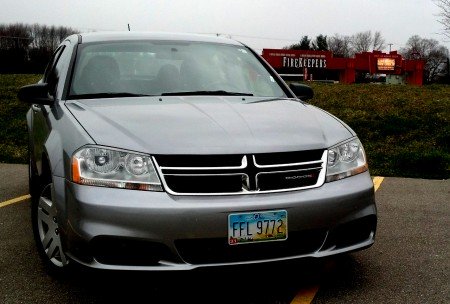No Credit Score? Show Your Cable Bill, Get Approved
New technology is allowing buyers with no credit score – due to a lack of credit history or a personal bankruptcy – to get vehicle financing via examination of documents like the payment history of their cable or cell phone bill.
Automotive News reports that companies like Equifax can provide information for customers who have been diligent about paying their bills, even if they have not yet tapped traditional lines of credit.
Lou Loquasto, who runs auto finance for Equifax, told AN
“One thing that Equifax and others have is nontraditional credit. Equifax can tell a lender, ‘Hey, this customer has a $200 cell phone bill, they’ve got $400 in utilities, they’ve got $100 in cable, and they’ve had this for four years. They’ve paid perfect.”
Of course, there’s also the question of whether this initiative is just a way to issue more subprime loans, which can then be securitized and sold to yield-hungry investors. That’s usually been the big fear with extending credit for auto loans, but an Equifax economist told AN that there are other ways of looking at data over a longer timeline
“They’re not subprime individuals, they just have a subprime credit rating…There’s a lot of connotations with that, and I think it’s wrong, particularly after what we’ve seen with the recession, where a lot of people fell on hard times. Bad things happen to good people, and a lot of it is out of their control.”
A TTAC source at an OEM captive finance arm concurred with this assessment, telling us that they have spent a fair amount of effort in retaining customers who once leased their vehicles, but had fallen on hard times during the recession. Their less than stellar credit scores were the result of circumstances, rather than delinquent payment histories, and getting them back into a new lease was a goal for the captive.
Even so, a healthy dose of skepticism is required when taking a look at subprime auto loans. A February report by RatingsDirect shows that both losses and delinquencies are on the rise, while the market remains hungry for these types of loans. As a result, underwriting standards are changing as more and more consumers are being approved – including many who might not get financing in the first place. All of this adds up to a riskier loan pool, and the rise in losses and delinquent payments isn’t expected to fall any time soon.
More by Derek Kreindler
Latest Car Reviews
Read moreLatest Product Reviews
Read moreRecent Comments
- Lou_BC Well, I'd be impressed if this was in a ZR2. LOL
- Lou_BC This is my shocked face 😲 Hope formatting doesn't fook this up LOL
- Lou_BC Junior? Would that be a Beta Romeo?
- Lou_BC Gotta fix that formatting problem. What a pile of bullsh!t. Are longer posts costing TTAC money? FOOK
- Lou_BC 1.Honda: 6,334,825 vehicles potentially affected2.Ford: 6,152,6143.Kia America: 3,110,4474.Chrysler: 2,732,3985.General Motors: 2,021,0336.Nissan North America: 1,804,4437.Mercedes-Benz USA: 478,1738.Volkswagen Group of America: 453,7639.BMW of North America: 340,24910.Daimler Trucks North America: 261,959


































Comments
Join the conversation
There is a LOT more to this than one might see on the surface. Utility and cable bills are frequently used to prove residency. A lender wants to know where the borrow actually lives. They like to know that the borrower has the means to pay housing and utility bills. But the most important thing is previous car credit. But what needs to be understood is that the word "approved" doesn't mean the borrower is approved under A Tier terms. The down payment required will be much larger on average and the interest rate at least triple. "Loan to value" on the vehicle will be carefully monitored as well as the borrower's "debt to income" level. In addition, a "tracking device" may be installed on the vehicle used for collateral ESPECIALLY if the dealer is holding the paper. Yes, the loan application may be "approved" but certainly not on the same terms as a A rated borrower.
How does one go about getting a credit score? I don't have the slightest idea what mine is.